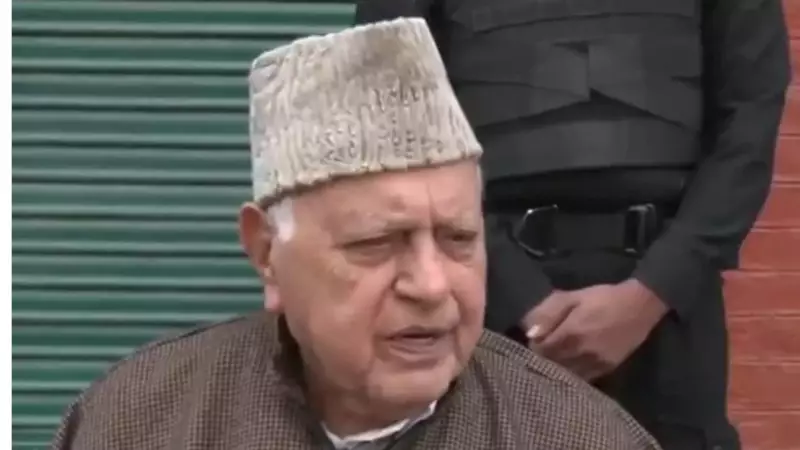
Senior Leader Addresses Security Concerns and Regional Diplomacy
Jammu & Kashmir National Conference president Farooq Abdullah has made significant statements regarding India-Pakistan relations in the wake of recent explosive incidents that have shaken the region. The veteran politician spoke out on Saturday following the devastating blast at Nowgam Police Station, which occurred shortly after the explosion near Delhi's historic Red Fort.
Casualty Figures and Structural Damage
The Nowgam incident resulted in nine fatalities and 32 injuries, along with substantial damage to buildings in the area. Meanwhile, the Delhi explosion near Red Fort claimed 12 lives, creating a tense security atmosphere across the nation.
In his interview with ANI, Abdullah expressed strong views about military operations between the two neighboring nations. "I hope no such thing (Operation Sindoor) will happen. Nothing came out of it," the former chief minister stated, referencing the controversial operation that reportedly cost Indian forces significant losses.
Call for Diplomatic Solutions
Emphasizing the importance of peaceful coexistence, Abdullah invoked the wisdom of former Prime Minister Atal Bihari Vajpayee. "I want to repeat what Vajpayee Ji said, friends can be changed, but neighbours cannot," he remarked, underscoring the geographical reality that binds India and Pakistan together permanently.
The NC leader stressed that improving bilateral relations represents "the only way" forward for both nations, suggesting that continued hostility serves neither country's long-term interests.
Demand for Thorough Investigation
Abdullah has called for an extensive independent inquiry into the Nowgam explosion, suggesting that improper handling of explosives might have contributed to the tragic incident. He expressed particular concern about the technical expertise employed in dealing with dangerous materials.
"This is our mistake," Abdullah admitted during his earlier Srinagar interview with ANI. "Those who understand this explosive better, we should have talked to them first about how to deal with it instead of trying to handle it ourselves."
The leader pointed to the devastating consequences of this approach, noting that nine people lost their lives and significant damage was inflicted on residential properties in the area.
Addressing Trust Deficit and Collective Blame
Abdullah also discussed the troubling climate of suspicion developing toward Kashmiri residents nationwide following the Delhi blast. He voiced concern about the tendency to point fingers at entire communities based on regional identity.
"We haven't yet come out of the crisis in Delhi where fingers are being pointed at every Kashmiri," he observed, questioning when the day would come when Kashmiris would be universally accepted as equal citizens of India.
The JKNC leader emphasized the need to understand the root causes that might drive educated professionals toward extremism, rather than engaging in blanket condemnation. "Ask those who are responsible why these doctors had to take this path? What was the reason?" he challenged authorities.
Accountability and Preventive Measures
Abdullah stressed that the circumstances surrounding the blast, including the suspected involvement of medical professionals, demand detailed examination. "There is a need for a thorough investigation and study of this," he stated firmly.
The leader urged authorities to determine responsibility clearly and implement effective preventive measures to avoid similar tragedies in the future. The Jammu and Kashmir Police are currently investigating the Nowgam explosion, which occurred while security personnel were handling an explosive device within the police station premises.
As investigations continue, Abdullah's comments highlight the complex interplay between security concerns, inter-community relations, and international diplomacy that continues to define the political landscape in Jammu and Kashmir and beyond.





